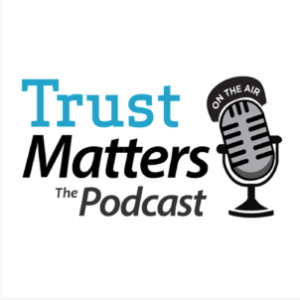5 Short Phrases to Build Relationships: Part 3 of 5
This is the third in a series of five posts on short (seven words or less) powerful phrases. Each phrase distills the essence of a key part of approaching trust-based relationships in business.
Why focus on short phrases like this? Because the concise expression of several emotionally powerful concepts packs a punch. Such phrases feel profound. They catch the listener’s attention. They force the listener to reflect. They are short enough to remember every word, and they resonate in the mind of the listener.
Today’s Phrase: (Three words)
“Help me understand…”
When your crocodile brain screams out, “What? How can you say such a thing?” this is the phrase to replace it with.
When to Use It:
- As noted above, this is a highly evolved way of dealing with an objection, with confusion, or with differing points of view
- This phrase converts confrontation into collaborative joint inquiry.
Examples:
- “Help me understand what’s behind the apparent resistance in the organization to the initiative as currently presented?”
- “Help me understand why you chose that element of the customer interaction to focus on as the primary driver?
- “Help me understand more about the history and perspective of the marketing organization as they address this issue?”
Why It Works.
These three words convey a lot in a small package. They convey a willingness to collaborate, to overcome apparent disagreement, and a genuine curiosity – all while cultivating respect (which, if offered, tends to be reciprocated).
Willingness to collaborate. Particularly because this phrase is used in a moment of potential confrontation, it marks a sharp turn in the conversation. It suggests that, rather than engaging in a battle between opposing ideas, you are willing to assume misunderstanding. Further, that the misunderstanding is likely yours, and not theirs. It signals graciousness, an unexpected reaction to confrontation.
Vulnerability. By explicitly asking for help, you indicate that you are not perfect, that you acknowledge it, and that you are not above seeking help from others. People’s response to being asked a favor is almost always to grant it – particularly if it is asked humbly, and even more particularly when they expected to be attacked instead.
Respect. The subtext of “help me understand” operates as a signal of respect. By assuming any fault to be yours, and by leading with curiosity, you (contingency) show respect to the other person’s ideas. The natural human reaction to an offering of respect (think a handshake, a bow, a thank you) is too reciprocate. Again, the respect is magnified because of the combative circumstance in which you offer the gesture
Next Blogpost: Short Phrase #4 of 5: “Tell me more…please.”
Click Here To Read The Full Series:
Part One
Part Two
Part Three
Part Four
Part Five






 It raises to the forefront the question: How do you create trust at a distance? Those who figure that out now will be appreciated, effective, and successful going forward.
It raises to the forefront the question: How do you create trust at a distance? Those who figure that out now will be appreciated, effective, and successful going forward.